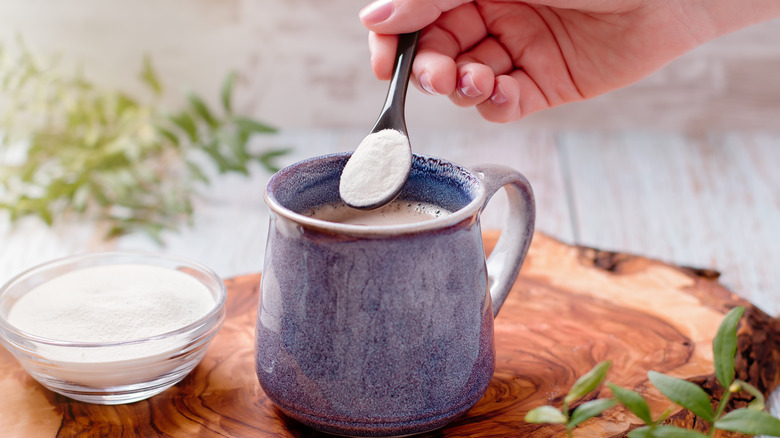These Two Types Of Food Additives Can Be Used Without FDA Approval
Take a good look at some of the food labels in your cabinet. Chances are, there are some extra ingredients in them aside from the main product featured on the label. For thousands of years, people have been adding spices and salt to foods, not only to flavor them but also to help preserve them, according to the Food and Drug Administration (FDA).
Food additives are defined by the FDA as substances that change the characteristics of food. These days they're used to improve a food's texture, appearance, flavor, nutritional value, or safety. To ensure food additives are safe for human consumption, the FDA evaluates and approves food additives under the 1958 Food Additives Amendment to the Federal Food, Drug, and Cosmetic Act. If a food manufacturer wants to add a new substance to food, it must submit research that shows that the additive is safe. Yet additives that are "generally recognized as safe" and any substances used in foods before the 1958 Food Additives Amendment don't fall under FDA approval.
Examples of food additives that don't need FDA approval
The FDA considers additives "generally recognized as safe" (GRAS) to be any flavorings, spices, phosphates, or other substances that aren't harmful if they're used under certain conditions. You might recognize some of these food additives in many common foods. Biotin, caffeine, corn syrup, and sucrose are all considered GRAS substances. Although many artificial sweeteners are considered to be safe, they must have FDA approval.
Other food additives don't need FDA approval because they were already used in foods before the 1958 Food Additives Amendment, also called the Delaney Clause. These substances include potassium nitrate and sodium nitrate. Food additives can be removed from this list if research shows that they can be harmful. For example, the FDA banned the use of seven synthetic flavorings in 2018 after health advocacy groups showed they caused cancer in laboratory animals. However, the FDA maintained that these substances were used in small amounts in foods and caused little risk to people.
Some food additives are banned in Europe
Although these two categories of food additives aren't subject to FDA approval, some of them are banned in Europe. Potassium bromate is used in small amounts to help oxidize the dough in bread and baked goods. This food additive was used before the Delaney Clause, which means it didn't need FDA approval. According to Michigan State University's Center for Research on Ingredient Safety, significant doses of potassium bromate were found to cause cancer in rodents. As a precaution, the European Union banned this food additive.
Butylated hydroxyanisole (BHA) and butylated hydroxytoluene (BHT) are two food additives generally recognized as safe by the FDA, but they're both restricted in Europe, according to The New York Times. LiveScience says that BHA is a preservative found in foods such as potato chips, cereal, baked goods, and dessert mixes. However, high doses of BHA have been found to cause cancer in rodents. BHT is also used as a food preservative but also can be used medicinally as an antioxidant to treat genital herpes and AIDS, according to WebMD. A 2021 opinion from the European Commission's Scientific Committee on Consumer Safety said that although BHT can promote tumors in animals, it's safe in small amounts found in mouthwash, toothpaste, and other hygiene products.



